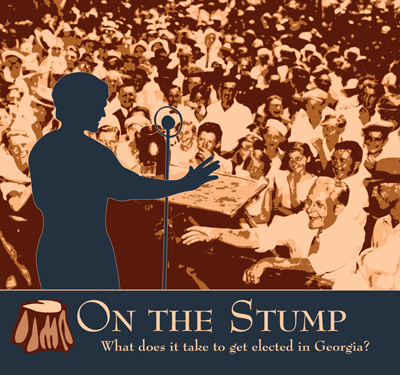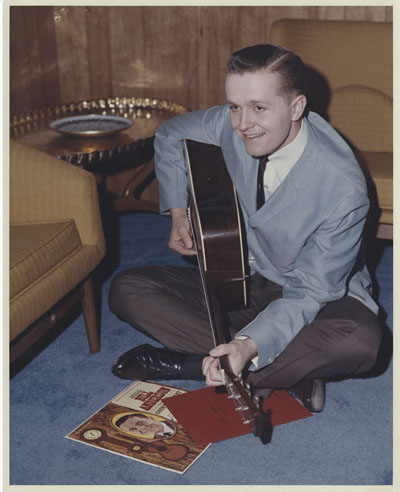Russell Library to Host 2016 Debate Watch
 As the campaign season comes to a fever pitch and Election Day draws near, the Richard B. Russell Library for Political Research and Studieswill hold two presidential debate watch events this fall for the University of Georgia and Athens communities.
As the campaign season comes to a fever pitch and Election Day draws near, the Richard B. Russell Library for Political Research and Studieswill hold two presidential debate watch events this fall for the University of Georgia and Athens communities.

 A new exhibit that explores the evolution of campaigning for political office in Georgia opens today in the Russell Library Gallery. On the Stump: What Does it Take to Get Elected in Georgia? invites visitors to step into the shoes of a candidate and onto the campaign trail: from the initial decision to run, to crafting a strategy, winning the nomination, shaking hands, kissing babies, and everything in between.The display considers the social, cultural, and political history of a state in motion from 1900 until 2012.
A new exhibit that explores the evolution of campaigning for political office in Georgia opens today in the Russell Library Gallery. On the Stump: What Does it Take to Get Elected in Georgia? invites visitors to step into the shoes of a candidate and onto the campaign trail: from the initial decision to run, to crafting a strategy, winning the nomination, shaking hands, kissing babies, and everything in between.The display considers the social, cultural, and political history of a state in motion from 1900 until 2012. The Georgia Department of Economic Development has declared 2016 to be “The Year of Georgia Music.” Inspired by this theme, the staff of the Walter J. Brown Media Archives and Peabody Awards Collection has created an exhibit featuring highlights from the Georgia Music Hall of Fame, Bill Anderson, and Cindy Wilson and Keith Bennett collections, a display guaranteed to keep Georgia music on your mind.
The Georgia Department of Economic Development has declared 2016 to be “The Year of Georgia Music.” Inspired by this theme, the staff of the Walter J. Brown Media Archives and Peabody Awards Collection has created an exhibit featuring highlights from the Georgia Music Hall of Fame, Bill Anderson, and Cindy Wilson and Keith Bennett collections, a display guaranteed to keep Georgia music on your mind. The University of Georgia Libraries and the UGA Center for Teaching and Learning (CTL) announce a new faculty development opportunity for individuals who teach full-time at The University of Georgia. The Special Collections Libraries Faculty Fellows Program provides instructional support and a $2000 financial stipend to faculty who wish to develop new courses or redesign existing courses to make significant use of the collections and resources of the University of Georgia’s three special collections libraries: the
The University of Georgia Libraries and the UGA Center for Teaching and Learning (CTL) announce a new faculty development opportunity for individuals who teach full-time at The University of Georgia. The Special Collections Libraries Faculty Fellows Program provides instructional support and a $2000 financial stipend to faculty who wish to develop new courses or redesign existing courses to make significant use of the collections and resources of the University of Georgia’s three special collections libraries: the